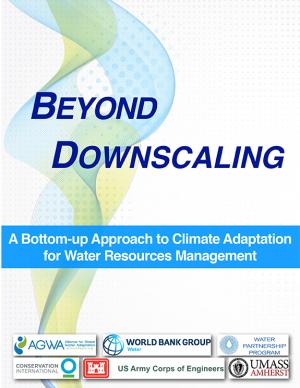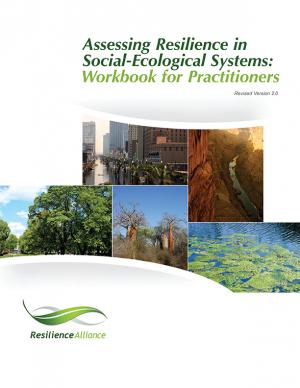Access a range of climate-related reports issued by government agencies and scientific organizations. Browse the reports listed below, or filter by scope, content, or focus in the boxes above. To expand your results, click the Clear Filters link.
The Working Group II contribution to the IPCC Sixth Assessment Report assesses the impacts of climate change, looking at ecosystems, biodiversity, and human communities at global and regional levels. It also reviews vulnerabilities and the capacities and limits of the natural world and human societies to adapt to climate change.
Climate change adds uncertainty to already complex global water challenges. Though no standard method has been adopted yet by the World Bank, common practice uses downscaled precipitation and temperature projections from Global Climate Models (GCMs) as input to hydrologic models. While this has been useful in some applications, they often give too wide a dispersion of readings to provide useful guidance for site-specific water resources management and infrastructure planning and design. Rather than design for an uncertain situation selected a priori, the so-called “bottom-up” approaches explore the sensitivity of a chosen project to the effects of uncertainties caused by climate change. Supported by the Water Partnership Program, this book summarizes alternatives explored by a group of organizations that belong to the Alliance for Global Water Adaptation (AGWA), to provide practitioners with the tools to adapt to the realities of climate change by following a decision-making process that incorporates bottom-up thinking.
The Intergovernmental Panel on Climate Change (IPCC) Working Group II's contribution to the Fifth Assessment Report (AR5) relates to climate impacts, adaptation, and vulnerability. A Summary for Policymakers and the underlying scientific and technical assessment are also available.
The workbook for practitioners uses strategic questions and activities to assess resilience in social-ecological systems. The approach involves constructing a conceptual model of a system that includes resources, stakeholders, and institutions, and identifies potential thresholds between alternative systems states in order to provide insight into factors that build or erode a system's resilience. A resilience assessment can help with developing strategies for coping with uncertainty and change.







